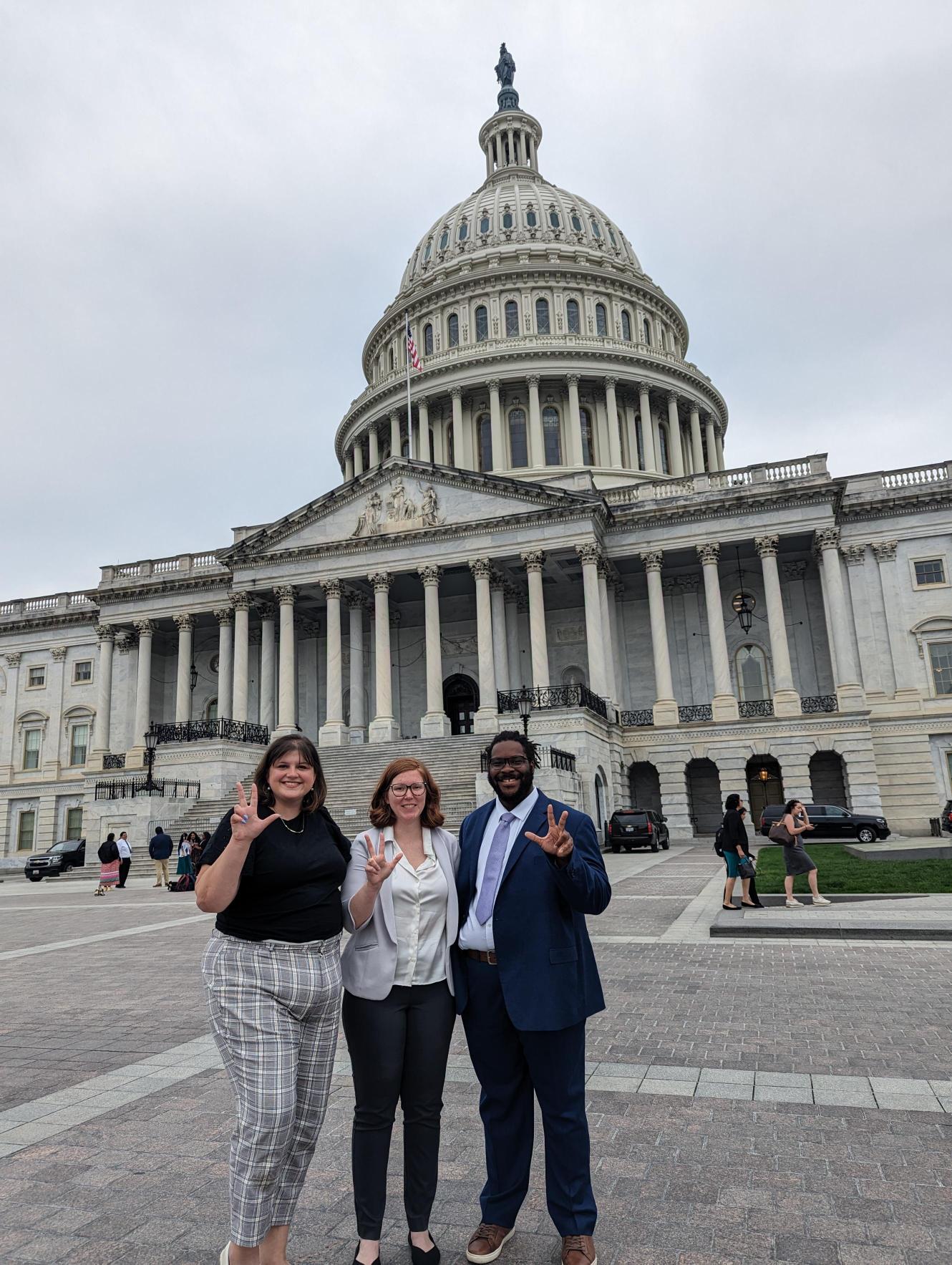Three Vanderbilt graduate students traveled to Washington, D.C. for the Catalyzing Advocacy in Science and Engineering Workshop hosted by the American Association for the Advancement of Science. The workshop provides an opportunity for students from around the country to learn from experts about the role of science in policymaking and the federal policy-making process. The Vanderbilt Office of Federal Relations has been sponsoring graduate students to participate in the AAAS CASE workshop for a decade.
The program aims to empower students to leverage their scientific expertise to shape public policy. Sessions covered a spectrum of topics, ranging from science policy, career pathways and the federal budget process to science communication skills and advocacy. Participants also learned how congressional offices and federal agencies operate and what it’s like to work there.

On the final day of the workshop, the Vanderbilt graduate students met with staff in four congressional offices, specifically those working in the intersection of science and policy. The staffers shared their perspectives on how scientists can advocate to shape public policy. The meetings were arranged by Vanderbilt’s Federal Relations team, offering a uniquely comprehensive experience for the Vanderbilt students.
“As a Ph.D. student knowing I don’t want to continue into academia, science policy is the answer to so many questions I had about how to use my expertise in the government sector,” said Lauren Bellocchio, Ph.D. candidate in chemistry. “This workshop taught me about how the federal budget is used for promoting science and technology policy, and I gained the invaluable firsthand experience of speaking directly with policymakers on Capitol Hill.”
Logan Northcutt, Ph.D. candidate in cancer biology, added, “I really learned a lot about policymaking and how funding for science is influenced by government priorities. I would highly recommend the AAAS CASE Workshop to anyone who is interested in science policy.”
Vanderbilt’s Office of Federal Relations works in close partnership with the Graduate Leadership Institute and the Office of Biomedical Research Education and Training ASPIRE program who select the students who participate each year.
“I’m thrilled to continue bringing students to Capitol Hill as part of the AAAS CASE program,” said Heather Bloemhard, associate director of federal relations. “The workshop is an excellent opportunity for both professional development and civic education; it is gratifying to see them gain valuable insights into science policy and advocacy and learn how they can have a meaningful impact on policy as both citizens and scientists.”
For students and post-docs interested in exploring careers in science policy or advocacy, Vanderbilt’s Office of Federal Relations hosts a biennial Federal STEM Policy & Advocacy Seminar. This program, inspired by the AAAS CASE Workshop, offers content tailored to the interests of the Vanderbilt community. The next seminar is tentatively scheduled for fall 2024 in Washington, D.C.
Civic Engagement at Vanderbilt
The Division of Government and Community Relations is committed to fostering civic engagement and advocacy among students, faculty and staff. Students can learn more about how to be an engaged citizen in the Student Advocacy Guide.
Some other civic engagement initiatives at Vanderbilt include: